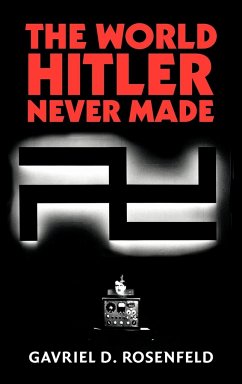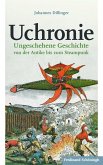What if the Nazis had triumphed in World War II? What if Adolf Hitler had escaped Berlin for the jungles of Latin America in 1945? What if Hitler had become a successful artist instead of a politician? Originally published in 2005, Gavriel D. Rosenfeld's pioneering study explores why such counterfactual questions on the subject of Nazism have proliferated within Western popular culture. Examining a wide range of novels, short stories, films, television programs, plays, comic books, and scholarly essays appearing in Great Britain, the United States, and Germany post-1945, Rosenfeld shows how the portrayal of historical events that never happened reflects the evolving memory of the Third Reich's real historical legacy. He concludes that the shifting representation of Nazism in works of alternate history, as well as the popular reactions to them, highlights their subversive role in promoting the normalisation of the Nazi past in Western memory.
Review of the hardback: 'With The World Hitler Never Made Gavriel Rosenfeld takes a completely fascinating and highly original cut into the complex of questions concerning the relationship between history and memory on the subject of Nazism and its place in post-1945 popular culture. He tackles these themes with great verve, writing with admirable clarity, and marshalling a prodigious array of speculative fictions and 'alternate histories' in order to build his arguments. The resulting book is both accessible and challenging, densely documented and thoroughly absorbing. All German historians will want to read it, as will anyone interested in Holocaust memory and the legacies of Nazism.' Geoff Eley, University of Michigan









